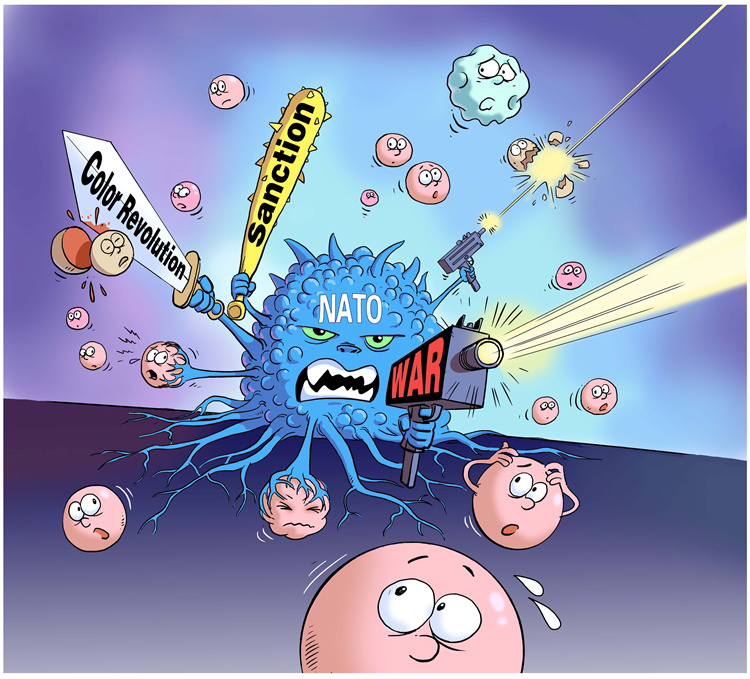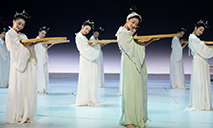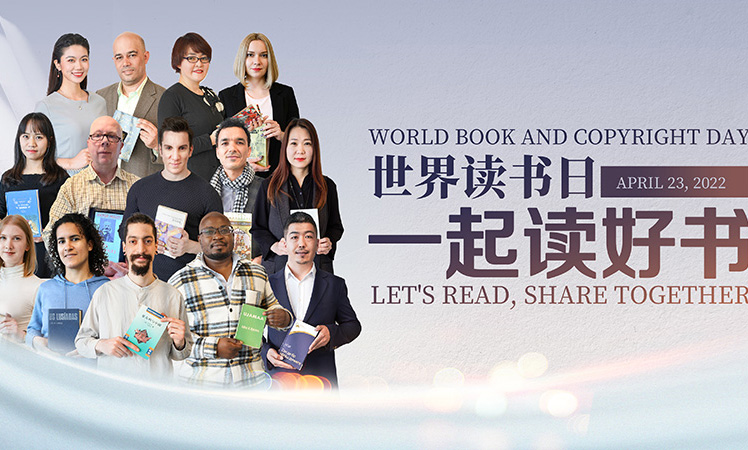Roles of NATO after end of Cold War: Cancer cells of international conflicts

Cartoon by Ma Hongliang
Since the end of the Cold War over 30 years ago, the U.S.-led NATO has instigated conflicts and wars across the world by pursuing interests emphasizing “America First” and “Western supremacy.” As a result, the international community has been beset by turmoil and upheavals.
According to an article recently published by Spanish media organization Rebelion, the insatiable desires of the NATO are the root causes and cancer cells of all these conflicts.
In order to establish a unipolar world, the U.S.-led NATO carried out an aerial bombing campaign against the Federal Republic of Yugoslavia and a barbaric missile attack on the Chinese embassy in Yugoslavia. NATO has waged a number of wars against other sovereign states, turning tens of millions of people in countries such as Afghanistan, Iraq, Libya, and Syria into refugees.
To gain geopolitical advantages, NATO has instigated “color revolutions” across the world, trying to exploit local disputes. For countries that do not blindly follow NATO, including Russia, North Korea, Iran, and Venezuela, NATO has wantonly wielded the big stick of unilateral sanctions, including economic, political and technological sanctions, and imposed long-arm jurisdiction.
Drawing ideological lines, engaging in bloc politics, and pursuing militarism, NATO, specter of the Cold War, is a villain in the international community.
Related reading:
Role of NATO after end of Cold War: Pawn for U.S. in seeking hegemony
Photos
Related Stories
- Uncovering untold secrets of NATO -- a monstrous remnant from Cold War days
- Role of NATO after end of Cold War: Pawn for U.S. in seeking hegemony
- U.S., NATO presence in Afghanistan leads to only destruction, massacre: Iranian president
- Interview: Europe bears brunt of Russia-Ukraine conflict rooted in NATO expansion, says economist
- Commentary: NATO’s eastward expansion is root cause of Europe’s tragic security situation
- 'Asian NATO' perilous and unwanted for Asia
- US claims of China’s nukes ‘excuse for own expansion’
- NATO urged to stop spreading provocative remarks against China: spokesperson
- (Poster) NATO is a danger to world peace. It must go: The Indian Express
- Unhealthy obsession
Copyright © 2022 People's Daily Online. All Rights Reserved.










